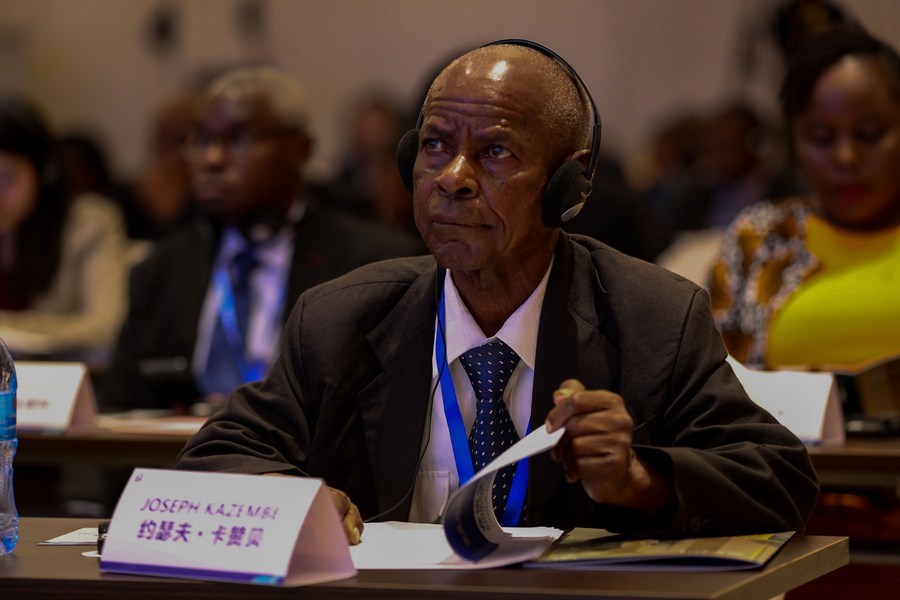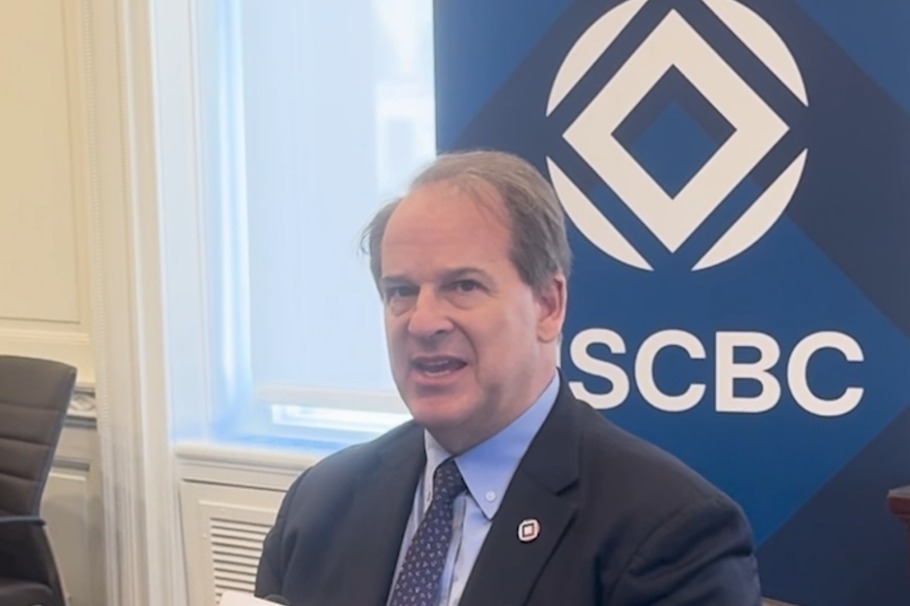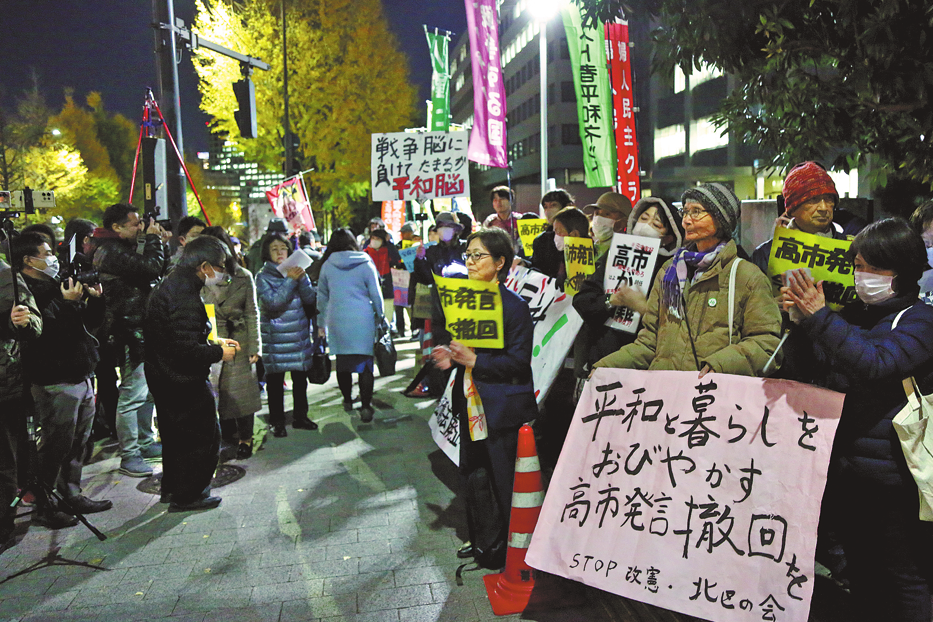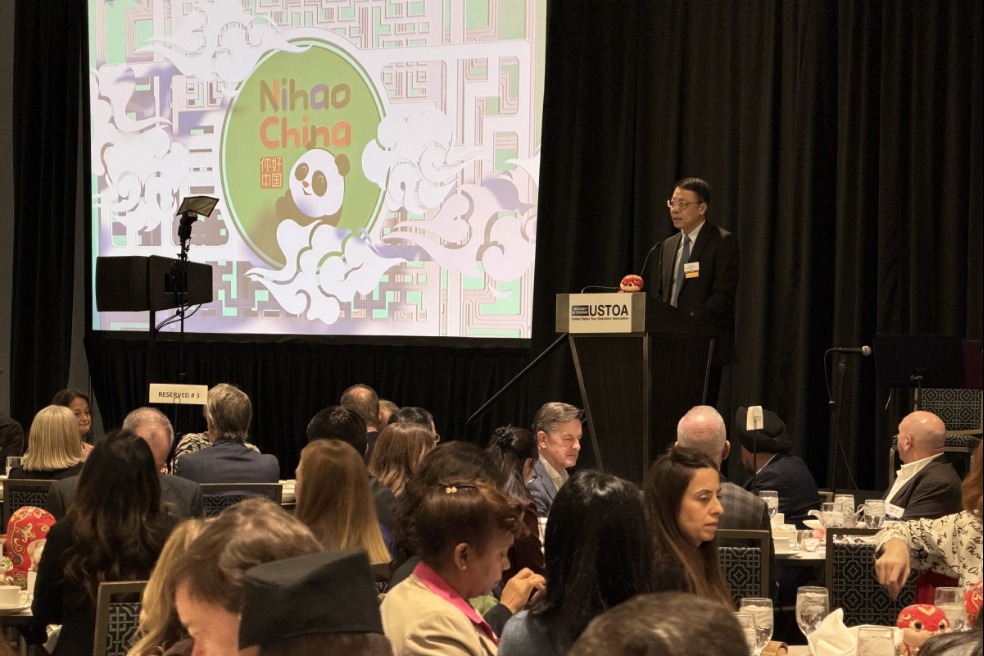Cooperation with Africa to remain deeply rooted


The 13th meeting of the China-Africa Think Tanks Forum was recently held in Dar es Salaam, Tanzania, and over 300 Chinese and African scholars jointly issued the Consensus Among African and Chinese Think Tanks on Deepening Global Development Cooperation.
The consensus, also known as the Africa-China Dar es Salaam Consensus, urges the international community to deepen development cooperation based on the principles of mutual respect, solidarity, win-win cooperation, openness and common prosperity. Its aim is to foster knowledge sharing, intellectual exchange and cultural prosperity.
"If you are not at the table in the international system, you're going to be on the menu," United States Secretary of State Antony Blinken remarked during a public forum at the Munich Security Conference in February. The analogy reflected the weak-and-strong mentality that is prevalent in the world order.
"Independence, mutual respect and mutual learning, people-oriented development philosophy, and sharing of development dividends" are key words and phrases in the eight major initiatives of the Africa-China Dar es Salaam Consensus. They represent the voices of unity, independence and innovation from the Global South countries as articulated by think tank scholars from China and Africa.
China-Africa cooperation and development have always been driven by a shared commitment and mutual understanding. Common development, shared interests, joint promotion of industries, collaborative ecological initiatives, mutual well-being, cultural co-prosperity, joint protection of security, and open, win-win cooperation, as called for in the consensus, not only vividly depict the current state of China-Africa cooperation, but also represent a promising prospect for China-Africa cooperation in the future.
We are not "food" on the dining table, but food producers for the entire world. China-Africa collaboration should be a broader "dining table". It is high time to put an end to the "table and menu "approach that seeks to divide and pick sides.
Regardless of how turbulent the world is, genuine and friendly relations between China and Africa will remain deeply rooted. China-Africa cooperation, characterized by mutual benefit and win-win outcomes, will persist in uniting people to navigate challenges and successes together.
The core proposition of the China-Africa Dar es Salaam Consensus is to encourage all countries to pursue a development path characterized by independence, mutual respect, mutual learning, and people-centered development. It aims to promote the establishment of an equal, orderly, multipolar world, foster an inclusive global economy, and enhance social productivity by activating the market through the synergy of efficient markets and effective governments.
Against the backdrop of a sluggish global economy and the turbulent geopolitical landscape, as well as rampant unilateralism, protectionism and hegemonism, the emergence of this consensus is timely. It fully reflects the expectations of Chinese and African think tank scholars for future development and the strengthening of the China-Africa Cooperation Vision 2035, bringing greater certainty and stability to a world of turmoil and chaos.
The China-Africa Dar es Salaam Consensus does not promote a singular model, but instead emphasizes subjectivity and autonomy, advocating that countries independently choose their development paths based on their own civilization and development needs. In this sense, the consensus stands as the most resounding declaration of shared prosperity, shared global responsibilities, fair market competition, and the establishment of a standardized financial order. It embodies the essence of the common wisdom of the people of China and Africa.
The unveiling of the consensus reflects the broadest consensus on global development among Chinese and African think tank scholars, demonstrating the unity of moral principles and rationality, as well as the alignment of interests and righteousness between the Chinese and African peoples.
Both sides firmly support the exploration of a development model suitable for their respective national circumstances, a pursuit that is poised to propel and guide the modernization process in the Global South. Furthermore, it will advance the implementation of the Initiative on Supporting Africa's Industrialization, the Plan for China Supporting Africa's Agricultural Modernization, and the Plan for China-Africa Cooperation on Talent Development.
Together, by aligning our words with consistent actions, we will build a high-level China-Africa community with a shared future, and a community with a shared future for mankind that will unite the world.
Liu Hongwu is a Changjiang Scholar appointed by the Ministry of Education and director of the Institute of African Studies at Zhejiang Normal University. Li Dongsheng is deputy director of talent training and think tank services at the Institute of African Studies.
































